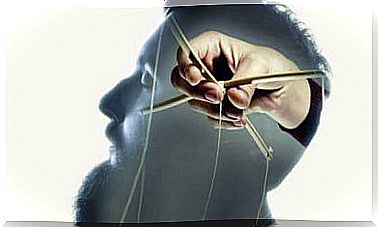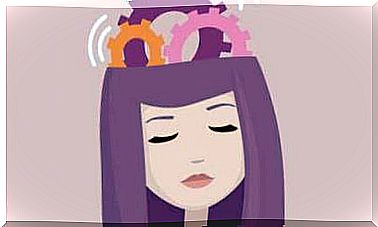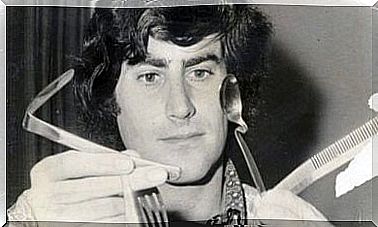Envy: The Toxicity Of An Obscure Feeling

Human history confirms that we are social beings. From the appearance of the first hominids to the development of different species, men and women unite to live together. Our emotional environment is the basis of our networking. The desire arises from this discovery.
The discovery of fire not only made it possible to see in dark nights, to protect oneself from the cold or to cook meat. But it also generated encounters around the campfire and favored contact, proximity, looks and the birth of the first gutturalisms, as being a primitive form of dialogue.
Vulnerability and resilience – this ability to resurface in the face of adversity – are constructs that make sense in this context and form a choreography that goes from stability to more disruptive instability, and of course to change. This will lead people to develop actions based on the different meanings they attribute to events that occur in life.

Communication games
It is in this choreography that different communication games develop. The different personality styles, the characteristics of each interlocutor, the form of verbal, paraverbal or non-verbal expression, the context in which the dialogue takes place and the content of the conversation.
Thus, in human communication, both nutritious and affective interaction games coexist. As well as games which have great toxicity.
When two people try to communicate, certain rules of communication unfold as the dialogue evolves. However, when the number of interlocutors increases, the complexity also increases and everything is more prone to misunderstandings.
Among these games, triangular dialogues (between 3 people) are a fateful example. Alliances are established, which become a coalition against a third party. The famous 2 against 1, in which the third must undergo segregation and disqualification from the other two. Anger, abuse, insults, manipulation. Irony, provocations, among others. This is a toxic game.
Jealousy is an example of a three-way relationship. A two-way relationship is disturbed by a real or imagined third party. Where one of the two feels relegated because he believes that his partner has certain behaviors of emotional connection with another person. This game generates anxiety and aggression. Anger, despair and other polluting feelings.
Envy, a cardinal sin
One of the most toxic games is envy. Therefore, Catholicism considers envy as one of the 7 deadly sins. Besides lust, gluttony, laziness, greed, pride and anger.
This gloomy feeling is triggered by the fact that the achievements and successes of a person close to and having some relation to the envious one, show their own inability or aptitude for that realization.
Subsequently, the envious initiate a series of disqualifications towards the envied in the attempt to destroy them. He feels so small, so helpless in the face of the success of the other, that he needs to diminish it in order to bring him to his knees in order to feel superior.
However, envy is not just the fact of coveting what others have. What characterizes more and more the true desire is the desire that the envied person does not have what she has, that success is not real.
Understood in this way, it is possible to conclude that envy is the mother of resentment. A feeling that does not seek to do better, but to do worse.
The envy becomes a satellite of the envied and he carries him in his pain, because if he confessed it, he would declare his inferiority.

Sometimes the envied person does not even discover the envious person’s feelings. Nobody says: “I envy you!” The envious person tries to hide his emotions and prefers not to show his handicap and to operate with sarcasm and devaluation regarding the success of his interlocutor. Expressing or explaining envy would be a symptom of forgiveness.
At work, when the boss envies his subordinate, envious behaviors are more complex and messy. Especially when the subordinate is cute, attractive, and smart. All these virtues are amplified in the eyes of the envious.
One of the resources of the envious is to point out that the envied got where he is through political connections. Because he is dating the manager or because behind his appearance of an intelligent person, there is a family drama. For example, an envious footballer does not lose the opportunity to disqualify the way the envied plays. Or even to shyly or innocently give it a good kick.
Envy implies not respecting estrangement or emotional closeness. In addition, envy between friends or siblings is a double bet on these dark feelings.
Jealousy promotes the desire for the opponent of the envied person to win the trophy, play the game better, be picked for work, or get a good mark on the exam. To feel envious in this way is obscene and treacherous. Since while the envious pretend that they are happy for their friend’s achievements, they envy him deeply from behind. Thus, behind the congratulations of the envious, hides the desire for destruction.
Malicious joy
The feeling of envy is associated with a malicious, dishonest and immoral attitude. Feelings that are the basis of strategies to overcome the envied. The envious person tries by all means to convince himself that the success of the envied person is not as it is. And she underestimates and disqualifies both the person and the content of her success.
She might say: “He is all the luckier because he has no abilities . ” “He’s not as smart as he looks”. “His triumph will not last “.
If the envious person manages to convince himself that what he says about the envy is true, he is mistaken. And that maybe makes him feel better, even if it’s not genuine well-being.
In the epicenter of the glory of the envious’s lies, when the envy fails his plans go wrong, he falls into depression. We reject the publication of our article, we appreciate our competitor more at work. Or one of those situations that shows envy falling.
In these moments, the silent desires of the envious come true. And that’s when they position themselves above the envied, because they feel superior and take over their very low self-esteem. Although this is a false personal assessment, not genuine and shallow. This period of jubilation and rejoicing in the face of the failure of the other is a malicious joy.
One of the most manipulative attitudes of the envious, through its fallacy and irony, is to support their enemy when he is saddened by failure and to be so disappointed at their loss.
When the envious person feels overwhelmed by this uncontrollable feeling, they speak badly about the envy or try to hurt them. Like denying him things, marginalizing him, slandering him, or even psychologically or physically abusing him. She can act with sarcasm, mockery, irony or with words that have a double meaning.
Change envy into awe
If we are not chronically envious, we have surely experienced this emotion at some point in our life. Because it is deeply rooted in human nature.
However, behind a person who feels envy, there is a devalued person who, instead of valuing himself, takes charge of despising the envy to balance this loss of self-esteem. However, this is not how you can boost your self-esteem. This only reinforces the devaluation.
In truth, if this envious person realized his devaluation, he might cease to act in this way. It may seem incredible that a feeling as complicated as envy can be used more easily than feeling admiration for another.
Admiration is a noble and clean feeling, a way of valuing and highlighting the achievements of one’s partner, friend, or relative. It is a way of expressing oneself before the desire arises. It is also an easy, simple and uncomplicated feeling. But to feel it, we have to be in harmony with ourselves. Valued and willing to positively assess the accomplishments of others.










